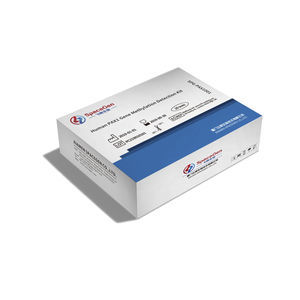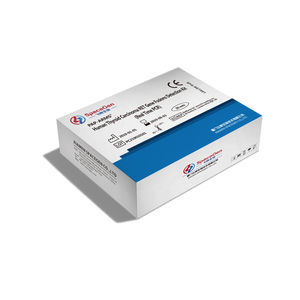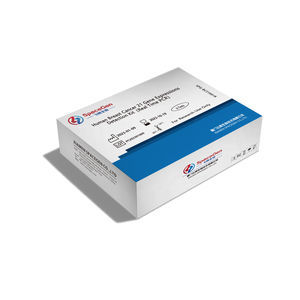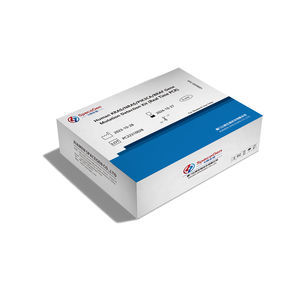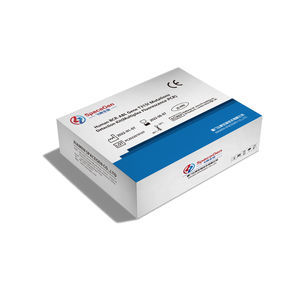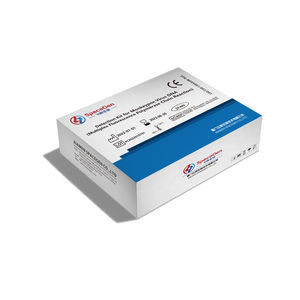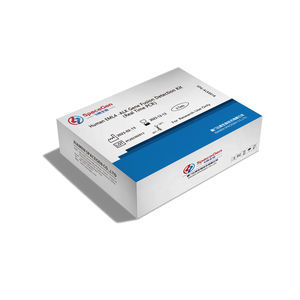

- Company
- Products
- Catalogs
- News & Trends
- Exhibitions
Lung cancer detection kit PC2022010416oncologygene ROS1RET gene
Add to favorites
Compare this product
Characteristics
- Applications
- for lung cancer
- Application field
- oncology
- Tested parameter
- gene ROS1, RET gene, ALK fusion
- Sample type
- clinical, cell
- Analysis mode
- for RT-PCR
Description
Gene fusion refers to a new hybrid gene formed by connecting parts or all of two different genes' sequences. The encoded fusion protein produced by this gene fusion can mediate the occurrence and development of tumors. In non-small cell lung cancer (NSCLC), gene fusions, as an important class of molecular mutations, serve as ideal targets for targeted therapy. Therefore, precise detection of gene fusions in NSCLC is crucial for selecting patients who can benefit from corresponding targeted treatments.
Gene fusion-positive NSCLC patients account for 8% to 12% of all NSCLC patients. Currently, various tyrosine kinase inhibitors (TKIs) targeting different gene fusions have been approved for clinical treatment. Late-stage NSCLC patients with gene fusion-positive can significantly benefit from corresponding targeted therapies. Additionally, multiple studies have shown that receptor tyrosine kinase fusions are one of the mechanisms for acquired resistance in NSCLC patients receiving specific targeted drug treatments. As a result, the NCCN guidelines for lung cancer diagnosis and treatment list anaplastic lymphoma kinase (ALK), c-ros oncogene 1 (ROS1), and rearranged during transfection (RET) as genes that must be tested.
DETECTION SIGNIFICANCE
Before first-line treatment of inoperable stage III and IV NSCLC patients, common gene detection of lung cancer should be performed, and treatment is recommended to be guided based on molecular classification.
FEATURES & ADVANTAGES
1. Stable and Reliable: Detection with closed tubes , avoid contamination
2. Hight Sensitivity: Detects fusion mutations as low as 100 copies in RNA samples.
Catalogs
No catalogs are available for this product.
See all of SPACEGEN‘s catalogsRelated Searches
- Assay kit
- Blood assay kit
- Immunoassay assay kit
- Plasma assay kit
- Infectious disease detection kit
- Analysis software
- Molecular test kit
- Respiratory infection test kit
- Whole blood detection kit
- Optical assay kit
- Clinical assay kit
- Fluorescence assay kit
- Viewer software
- Real-time PCR test kit
- Research assay kit
- Laboratory software
- Windows software
- Laboratory detection kit
- Cell assay kit
- Oncology test kit
*Prices are pre-tax. They exclude delivery charges and customs duties and do not include additional charges for installation or activation options. Prices are indicative only and may vary by country, with changes to the cost of raw materials and exchange rates.



